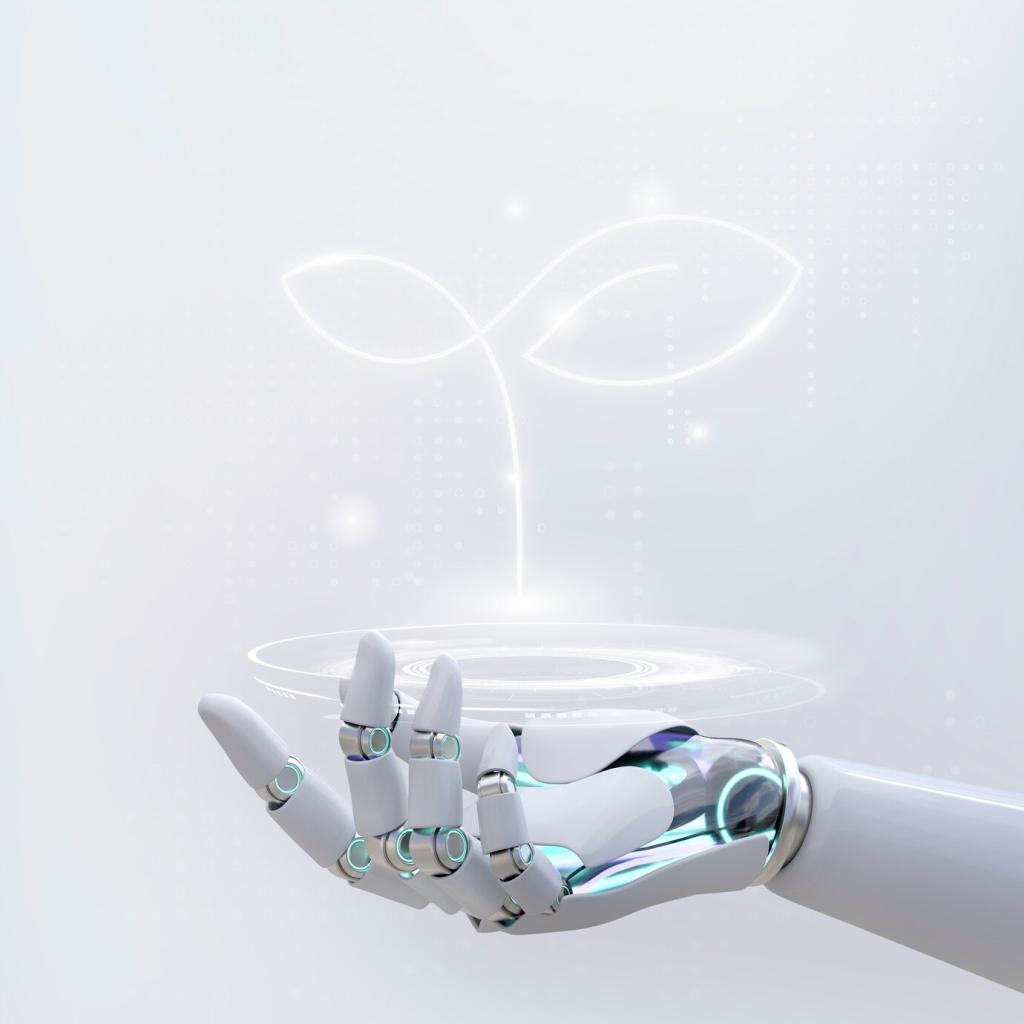Balancing AI Intervention and Human Touch in Mental Health Care
Advances in artificial intelligence are reshaping the landscape of mental health care by introducing new ways to assess, diagnose, and support clients. At the same time, the essential value of authentic, empathetic human connection remains irreplaceable. This page explores the complementary nature of AI technologies and human caregivers in mental health, considering both their individual strengths and the intricate balance required to ensure holistic, effective support for those in need.

The Evolution of AI in Mental Health Services
AI-Powered Assessment Tools
Artificial intelligence has made it possible to conduct mental health screenings swiftly and at scale. These assessment tools use patient data, from language patterns to behavior tracking, to flag potential areas of concern before a human intervention is even initiated. While this can expedite access to care, questions remain regarding bias in algorithms, the accuracy of predictions, and the need for human oversight to contextualize insights from AI. As these tools become more widespread, balancing efficiency with a robust safeguarding of human values and judgment is paramount for maintaining trust and efficacy in mental health assessment.
Automated Support and Virtual Therapy
Chatbots and automated counselors powered by AI deliver real-time support and therapy to individuals who might otherwise face barriers to care. These technologies are available around the clock and can offer immediate coping strategies or encouragement, helping to bridge gaps where human resources are limited. Still, the lack of nuanced emotional understanding and personalized empathy can pose risks if an individual’s needs go beyond standardized conversational flows. Integrating these tools as supplements rather than replacements for qualified professionals ensures technology amplifies—rather than diminishes—the human side of care.
Monitoring and Predictive Analytics
AI-driven monitoring tools can now track a patient’s mood, sleep, activity, and even social media behavior to predict periods of mental distress. By flagging warning signs early, these tools enable more proactive interventions and reduce the risk of crises. However, there are vital ethical considerations, including privacy concerns, data security, and the potential for over-reliance on algorithms. To maximize benefit, such innovations require transparent protocols and ongoing oversight by mental health professionals who can interpret and act on data in context, combining analytics with compassionate understanding.
The Undeniable Value of Human Connection
Empathy and Therapeutic Rapport
Empathy is at the core of effective therapy, allowing clients to feel understood, validated, and supported as they navigate mental health challenges. Even the most sophisticated AI models cannot genuinely comprehend human emotion or offer the nuanced warmth that comes from a caring listener. The therapeutic alliance is built on trust and the shared journey toward healing—a dynamic that robots or software cannot fully replicate. The presence of a compassionate human therapist not only fosters hope but also empowers clients to open up, reflect, and experience real transformation.
Personalized Adaptations in Treatment
Every individual’s mental health journey is unique, shaped by personal experiences, cultural backgrounds, and emotional resilience. Human clinicians are adept at reading subtle cues, adjusting their approach in real time, and co-creating treatment plans that adapt to evolving needs and complex personal circumstances. AI may provide helpful frameworks or suggestions, but it cannot replace the dynamic, intuitive personalization that a skilled professional brings to care. Human touch ensures that therapy is not just effective, but also relevant and deeply respectful of the client’s humanity.
Crisis Response and Compassionate Support
Moments of acute distress require more than technical intervention; they require presence, sensitivity, and sometimes just a listening ear. In crisis scenarios, human caregivers can assess risks holistically, respond with urgency, and provide life-affirming reassurance in a way that automated systems simply cannot match. The ability to stay calm, guide someone through terror or despair, and offer hope in the darkest moments is an irreplaceable cornerstone of mental health support. Blending AI tools with rapid access to skilled professionals enhances overall safety and care quality.
Navigating Data Privacy and Security
The use of AI in mental health care inevitably involves the collection and analysis of sensitive personal data. Protecting this information is paramount not only to follow legal guidelines but also to sustain client trust in the therapeutic process. Missteps in data handling or breaches in security can have severe emotional and legal consequences. Ensuring that robust data protection measures are in place and that clients are fully informed about their rights and the use of their information is essential as AI-powered systems become more deeply entrenched in mental health care.
Training Professionals for New Technologies
As AI tools take on a greater role in assessment and intervention, mental health professionals must receive adequate training to understand, interpret, and appropriately use these technologies. It is no longer enough to be an excellent therapist; proficiency in digital literacy and a comprehensive understanding of algorithmic strengths and shortcomings are now necessary. Ongoing education ensures practitioners can leverage AI effectively while safeguarding against over-reliance, ensuring that human judgment remains central to care.
Ethical Boundaries and Professional Oversight
The integration of AI in mental health raises numerous ethical questions, from the possibility of decision-making automation to the risk of depersonalizing care. Establishing clear ethical boundaries—such as when to defer to technology and when to intercede as a professional—is essential. Regular oversight by qualified clinicians ensures AI remains a supportive partner, enhancing, rather than eroding, the ethical underpinnings of mental health work. These boundaries must be fluid, adapting as technology evolves, but always centered on the wellbeing and rights of the client.
